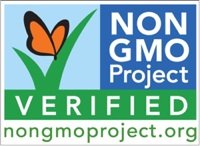The full length documentary, Genetic Roulette--The Gamble of Our Lives, details the negative health effects of GMO's, genetically modified organisms (the above video is a 10 minute remix). GMO’s are created by taking
a DNA from the cell of one species and inserting it into another species to
create a desirable trait. In
food, those traits include longer shelf life, pest resistance, and herbicide
resistance. This scientific manipulation is widely used; it affects much of our food supply and, as mounting evidence indicates, our health.
As consumers, we have the power to force
the food industry to reject genetically modified foods, by simply refusing to
buy them. The "Non-GMO Project" offers four ways
to avoid GMO’s in our food:
Buy Organic
Certified
organic products cannot intentionally include any GMO ingredients.
Look for "Non-GMO Project" verified
seals.
This independent groups verifies that individual products have not been genetically modified.
Buy Products listed in the Non GMO Shopping Guide
"Avoid at-risk ingredients including:
soybeans
canola
cottonseed
corn
sugar from sugar beets
If a non-organic product made in North America lists “sugar” as an ingredient (and NOT pure cane sugar), then it is almost certainly a combination of sugar from both sugar cane and GM sugar beets.
GM alfalfa is also fed to livestock.
Dairy products may be from cows injected with GM bovine growth hormone,
look for labels stating No rbGH, rbST, or artificial hormones."*
Dairy products may be from cows injected with GM bovine growth hormone,
look for labels stating No rbGH, rbST, or artificial hormones."*




